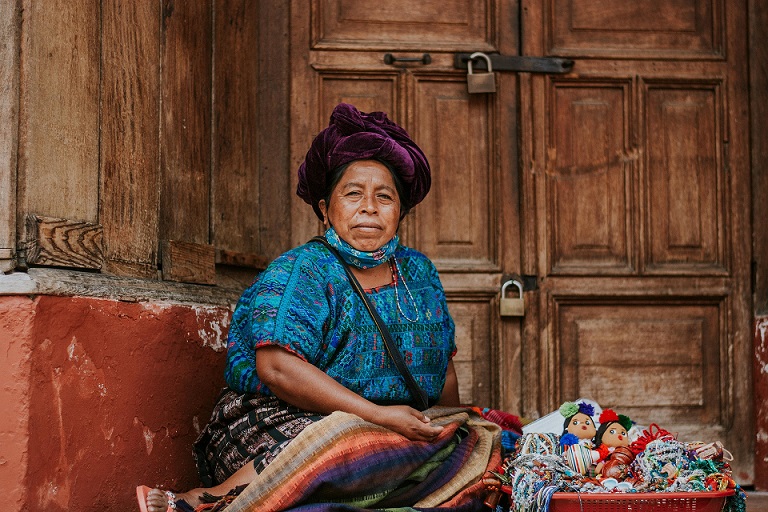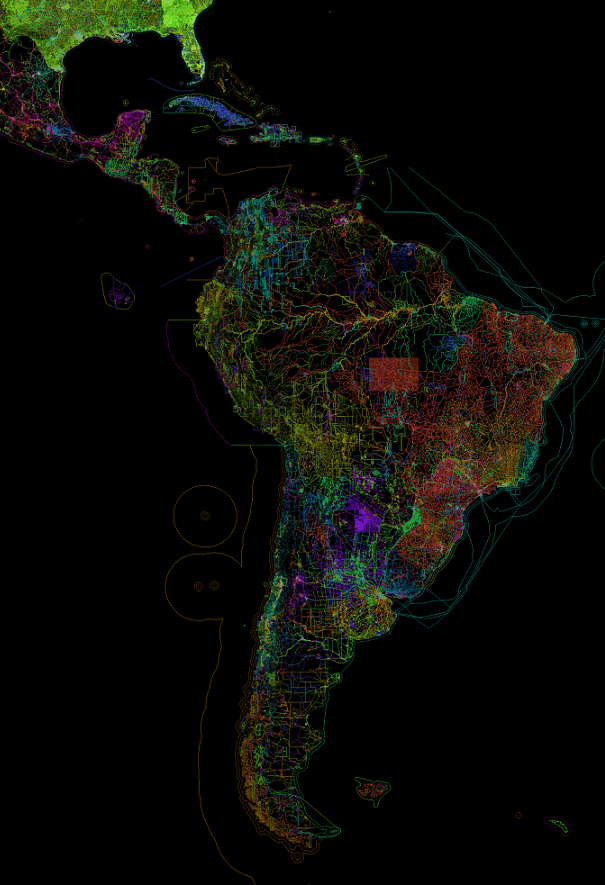In the complex framework of the new world order, collective action offers periphery countries a much greater margin to act in defence of their strategic interests and their programmes to promote a new model of social order which allows them to reach modernity in all respects.
 Juan Diego García
Juan Diego García
One of the most proven methods is regional integration. In the case of Latin America and the Caribbean, it has gained a certain protagonism in recent decades and it is one of progressive and revolutionary governments’ aims. Such an aim was already an idea promoted by the leaders of the wars of independence, particularly and notably by Simón Bolívar. Ever since then, and until the present day, one of the major obstacles to turning the dream of real independence into reality has been the role of the creole oligarchies who play the part of instruments of the imperialism of yesterday and today and who gain from that relationship their main source of power.
It is no surprise then that in practice (sometimes openly, sometimes less openly) these creole oligarchies have been and are the most decisive local obstacle to regional integration happening. And when some progressive government has tried to promote it, there is never any lack of direct action – of all types – by those imperialist powers, including armed aggression and invasion, particularly by the United States government.
 The relative weakening of traditional powers and the appearance on the global stage of new ones – China, especially – offer significant room to manage in a less complicated way the periphery countries’ difficult relations with the traditional centres of old colonialism and the modern forms of imperialism.
The relative weakening of traditional powers and the appearance on the global stage of new ones – China, especially – offer significant room to manage in a less complicated way the periphery countries’ difficult relations with the traditional centres of old colonialism and the modern forms of imperialism.
To the extent that a new dynamic has arisen where the dominant classes of some of these countries are significantly decreasing their relations (especially their economic relations) with the old powers and are replacing them with new ones, precisely with emerging powers.
Regional integration is promoted then by progressive governments although there is no lack of very traditional leaders who embody the local dominant classes’ interests and whose commercial operations, at least in part, lead in the direction of a new regional action.
 Local oligarchies are progressing in their economic relationships with China and Russia (among others) while formally being firm allies of the West. Brazil and Mexico. These are the region’s two largest economies and right now they have very solid relationships with the new powers. In such specific cases as that of Argentina, it is proving very difficult for the new right-wing government to match its pro-Western narrative with the business of a decisive part of its dominant class for whom the Chinese market is their main customer of cereals and meat.
Local oligarchies are progressing in their economic relationships with China and Russia (among others) while formally being firm allies of the West. Brazil and Mexico. These are the region’s two largest economies and right now they have very solid relationships with the new powers. In such specific cases as that of Argentina, it is proving very difficult for the new right-wing government to match its pro-Western narrative with the business of a decisive part of its dominant class for whom the Chinese market is their main customer of cereals and meat.
In the cases of the Peruvian and Ecuadorian governments, they are openly supporters of the Western powers, to the point that they offer Washington huge assistance to broaden their military presence in the region, while decisive sectors of their local oligarchies maintain and broaden their trade links with Beijing.
In Peru’s case, well-known local businessmen, with the support of a government that is in no way progressive, have just signed an agreement with a Chinese company to build the Pacific’s most important port in the region. That affects the United States’ interests as it offers, for example, Brazil the exit to the Pacific it longs for, which is key to trading with China. This panorama suggests then that the new world situation, with the emerging powers in the ascendancy, gives greater margin for action to regional integration processes. The countries that promote various forms of regional integration now have new options for managing their trade and moving forward with the task of undertaking structural reforms such as industrialisation, incursion in new technologies and in other forms of modernity.
 In this way, these countries can be something more than suppliers of commodities and cheap labour to the metropolitan markets; they can overcome the classic forms of dependence of these periphery nations on the traditional centres of global capitalism (the United States and Europe, in particular).
In this way, these countries can be something more than suppliers of commodities and cheap labour to the metropolitan markets; they can overcome the classic forms of dependence of these periphery nations on the traditional centres of global capitalism (the United States and Europe, in particular).
This new panorama, in the framework of the new world order, will make it easier for the region’s progressive and revolutionary governments who want to promote these reforms jointly, without ruling out the possibility that conservative governments might be dragged in to negotiate decisive policies appropriately. Here we are talking about, for example, policies in the field of credit, external debt and suchlike which nowadays constitute a burden which in so many instances is unbearable for their economies. The repayment of external debt alone constitutes an enormous percentage of national wealth.
For similar reasons, it is not impossible that progressive governments and their local oligarchies manage to agree new forms of foreign investment, of exploitation of natural resources and so on, just as Gustavo Petro is doing in Colombia.
Nor would it be impossible that they secure and broaden agreements that turn the exclusion of nuclear arms in the region into reality and reduce, and in the future eliminate, foreign military presence.
 For example, taking steps to exclude from the area organisations such as NATO and other forms of military commitment, making Latin America and the Caribbean a peace zone. Of course, an integration process with greater prospects assumes popular and very progressive governments, but given the enormous instability seen here, moving towards the aforementioned integration seems inevitable.
For example, taking steps to exclude from the area organisations such as NATO and other forms of military commitment, making Latin America and the Caribbean a peace zone. Of course, an integration process with greater prospects assumes popular and very progressive governments, but given the enormous instability seen here, moving towards the aforementioned integration seems inevitable.
(Translated by Philip Walker – Email: philipwalkertranslation@gmail.com) – Photo: Pixabay












.jpg)












